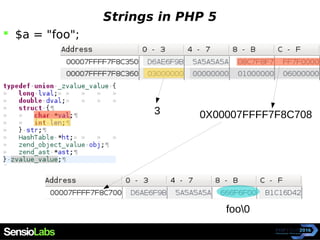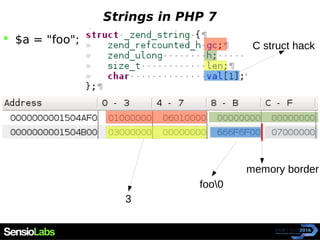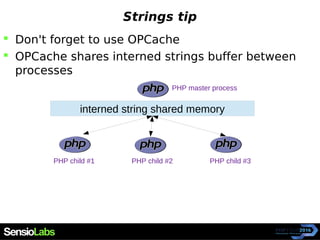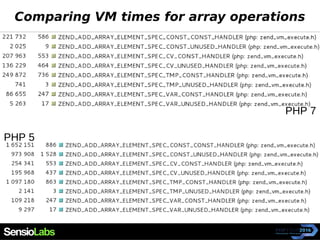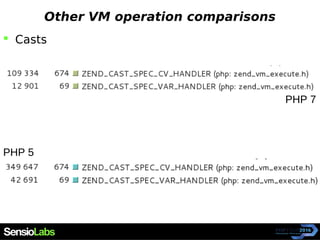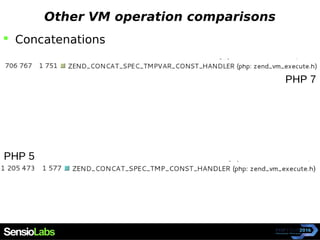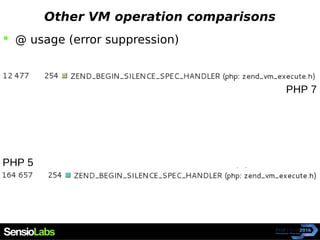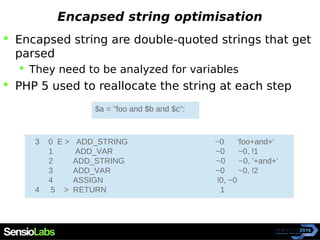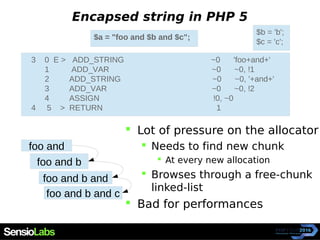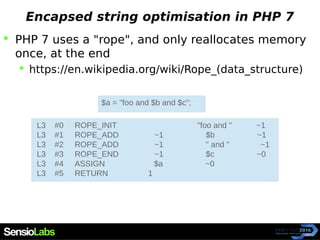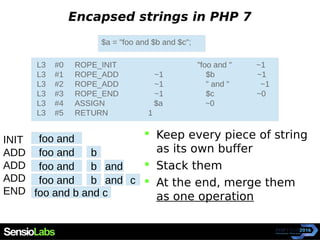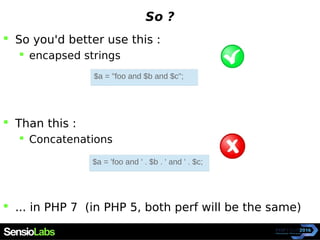The document discusses performance improvements in PHP 7 compared to PHP 5. It summarizes profiling results that show PHP 7 code runs 25% faster and uses 30% less memory than PHP 5 code. It then discusses various internal optimizations in PHP 7 that provide these performance gains, such as improved compiler optimizations, more efficient variable, hashtable and string handling. The document provides examples of how these internal changes help optimize CPU cache usage and reduce memory overhead.
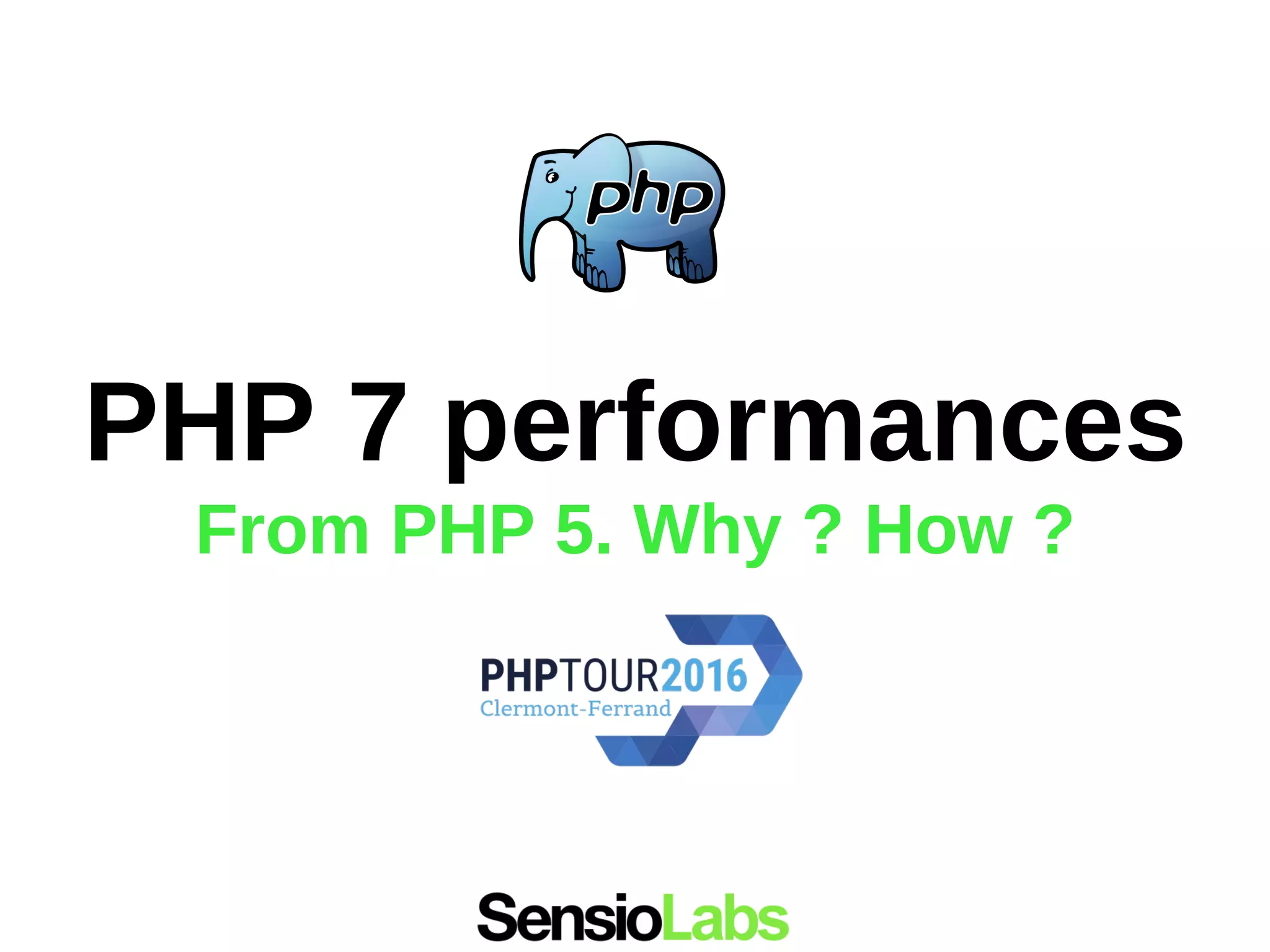
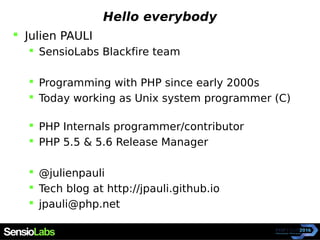
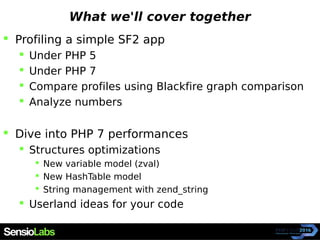
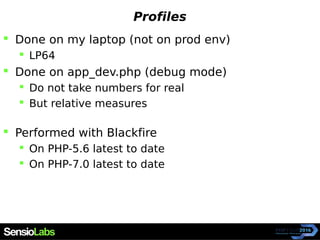
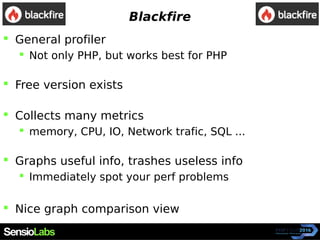
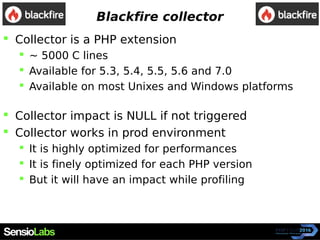
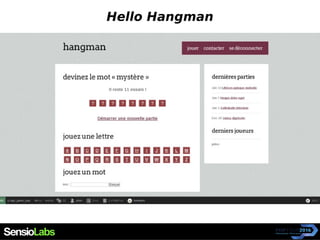
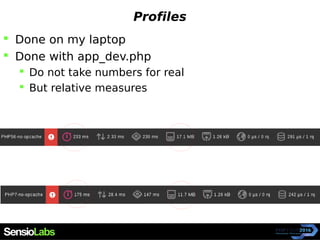
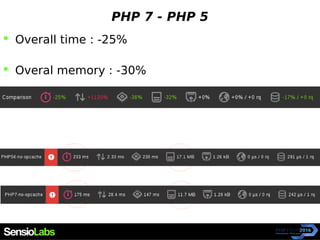
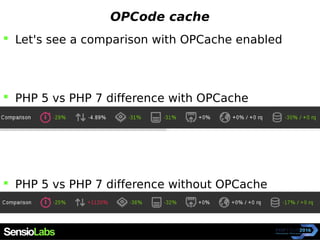
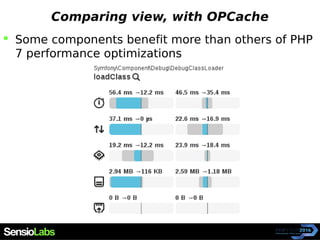
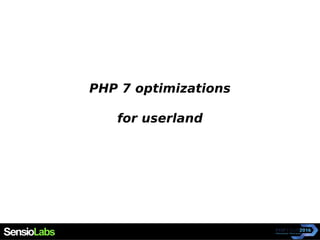
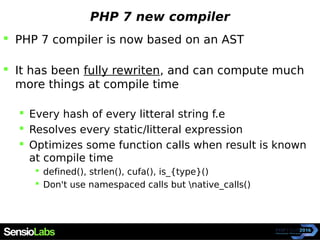
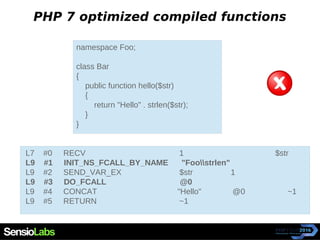
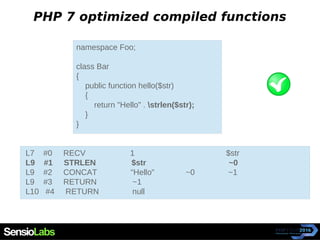
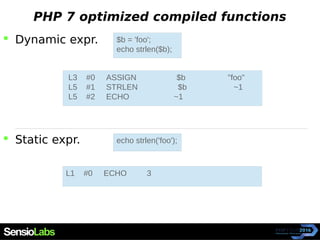
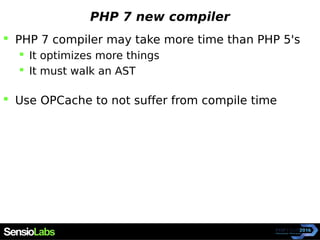
![PHP 7 compiler optim example, static arrays
Arrays containg keys/vals that are static/litteral
Such arrays are fully resolved at compile time
They involve 0 runtime work
const FOO = ['bar', 'baz', 'foo', 34, [42, 'bar'=>'baz']];](https://image.slidesharecdn.com/profilingphp5tophp7-160524125240/85/Profiling-php5-to-php7-18-320.jpg)
![Static arrays in PHP 5
A lot of runtime is eaten to construct the same
array again and again
$a = ['bar', 'baz', 'foo', 34, [42, 'bar'=>'baz']];
3 0 E > INIT_ARRAY ~0 'bar'
1 ADD_ARRAY_ELEMENT ~0 'baz'
2 ADD_ARRAY_ELEMENT ~0 'foo'
3 ADD_ARRAY_ELEMENT ~0 34
4 INIT_ARRAY ~1 42
5 ADD_ARRAY_ELEMENT ~1 'baz', 'bar'
6 ADD_ARRAY_ELEMENT ~0 ~1
7 ASSIGN !0, ~0](https://image.slidesharecdn.com/profilingphp5tophp7-160524125240/85/Profiling-php5-to-php7-19-320.jpg)
![Static arrays in PHP 7
No runtime impact (but compile-time)
You'd better use OPCache
$a = ['bar', 'baz', 'foo', 34, [42, 'bar'=>'baz']];
L3 #0 ASSIGN $a array(5)](https://image.slidesharecdn.com/profilingphp5tophp7-160524125240/85/Profiling-php5-to-php7-20-320.jpg)
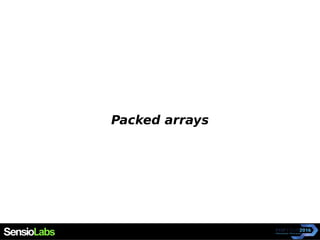
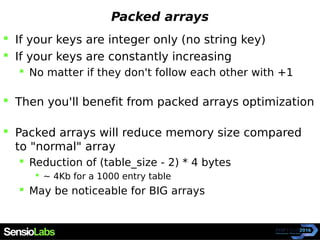
![Packed arrays example
const N = 1024 * 1023;
for ($i=0; $i<N; $i++) {
$tab[] = random_bytes(3);
}
echo memory_get_usage();
const N = 1024 * 1023;
for ($i=0; $i<N; $i++) {
$tab[] = random_bytes(3);
}
$tab['foo'] = 'bar';
echo memory_get_usage();
const N = 1024 * 1023;
for ($i=0; $i<N; $i++) {
$tab[] = random_bytes(3);
}
unset($tab[1000]);
$tab[1000] = 1000;
echo memory_get_usage();
~67Mb
~71Mb
~71Mb](https://image.slidesharecdn.com/profilingphp5tophp7-160524125240/85/Profiling-php5-to-php7-23-320.jpg)
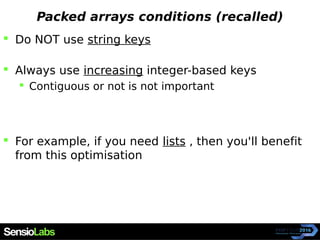
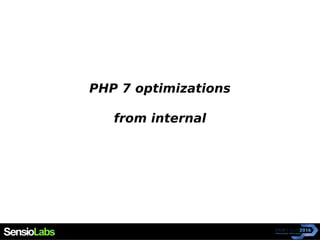
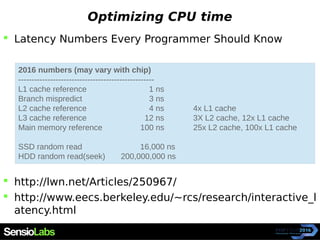
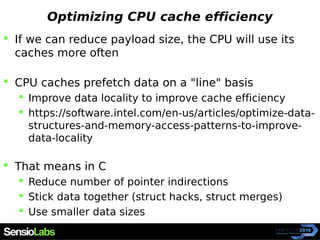
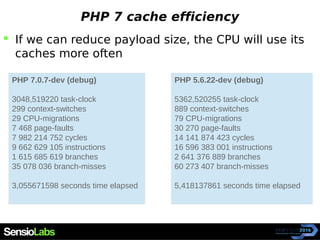
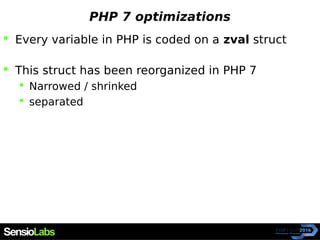
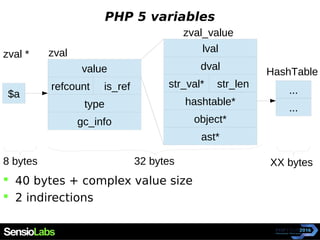
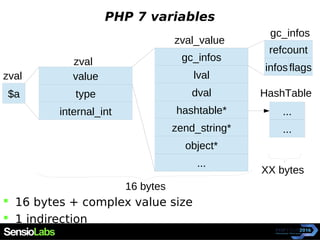
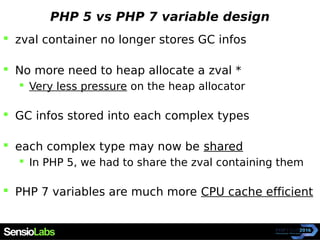
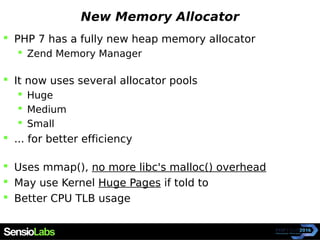
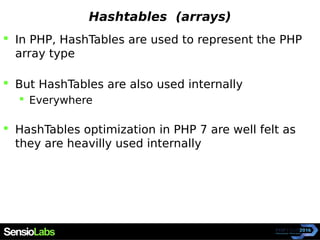
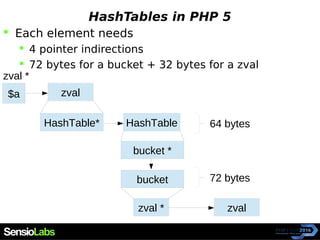
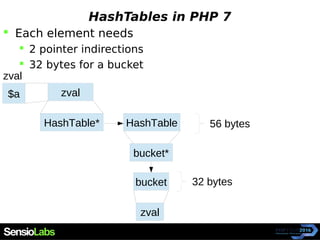
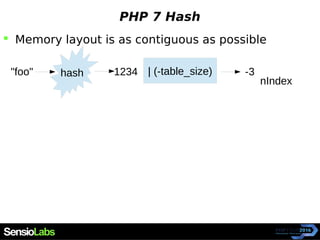
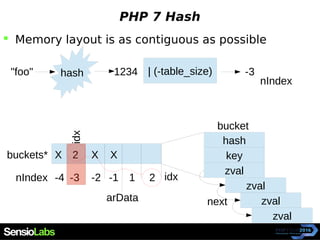
![PHP 7 HashTables memory layout
$a['foo'] = 42;
arData
-6-7
arData[0]
arData[1]
42 bucket](https://image.slidesharecdn.com/profilingphp5tophp7-160524125240/85/Profiling-php5-to-php7-39-320.jpg)
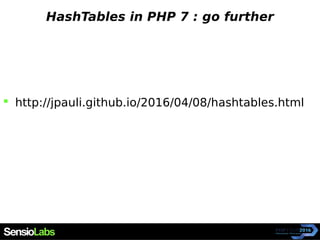
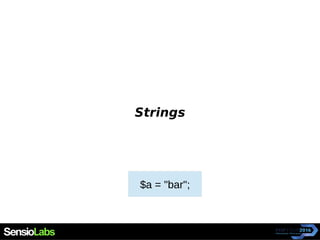
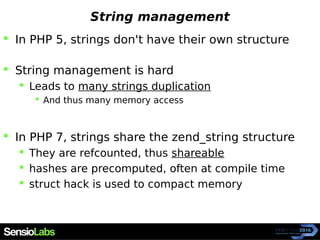
![Strings in PHP
char * str
...
zval
gc_infos
int len
refcount is_ref zend_string *
...
zval
...
hash
gc_infos
char str[1]size_t len
...
zend_string
PHP 5 PHP 7](https://image.slidesharecdn.com/profilingphp5tophp7-160524125240/85/Profiling-php5-to-php7-43-320.jpg)
